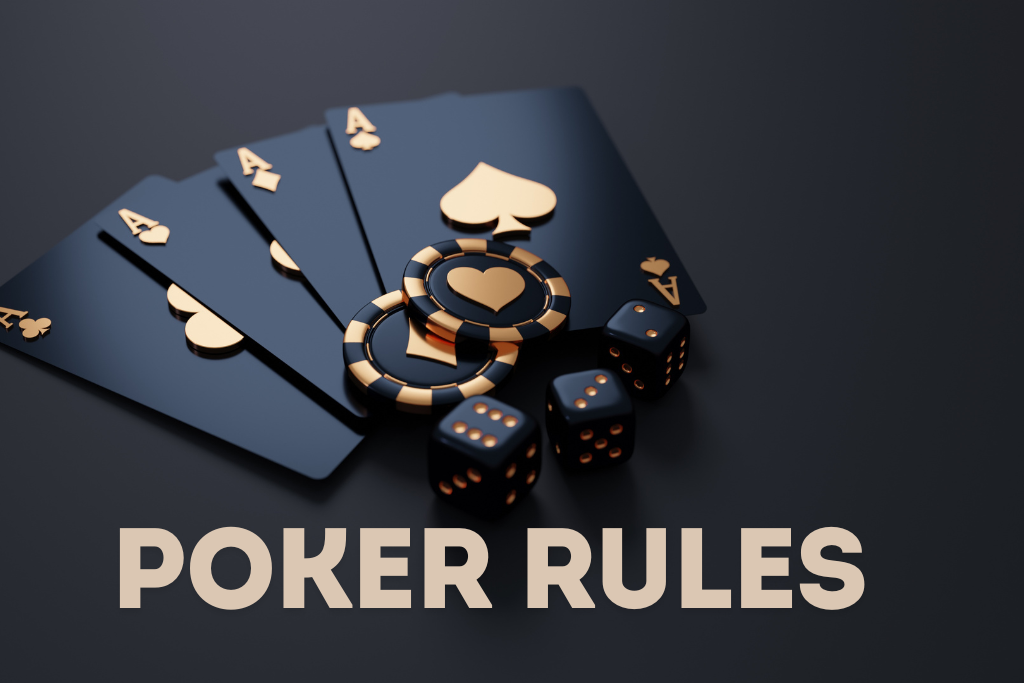Poker Strategy is a game of skill, strategy, and psychological warfare. Whether you’re playing casually with friends or entering high-stakes tournaments, understanding the fundamental strategies can significantly boost your chances of success. Here are some key strategies to keep in mind to improve your poker game.
1. Understand the Rules and Hand Rankings
Before diving into advanced strategies, make sure you’re familiar with the basic rules and hand rankings. Whether you’re playing Texas Hold’em, Omaha, or another variant, knowing the strength of each hand is essential. For example, a royal flush beats a straight flush, and a full house beats a flush. Having a solid foundation of these basic rules will give you an edge over players who are less familiar with the game.
2. Play Tight but Aggressive
One of the most common strategies for successful poker players is to play tight but aggressive. This means that you should be selective with the hands you play (tight), but when you do play, you should do so with confidence and aggression (aggressive). This could involve raising and re-raising rather than just calling, which can force opponents to make difficult decisions.
- Tight play means folding weak hands and only entering the pot with premium hands, like high pairs or suited connectors.
- Aggressive play involves betting and raising to put pressure on your opponents and maximize the value of strong hands.
3. Position is Key
In poker, your position at the table plays a crucial role in shaping your strategy. Players who act later in a hand have more information about how other players are betting and can use this to their advantage. Being in a “late” position (close to the dealer button) allows you to play a wider range of hands because you have more information about the actions of your opponents.
Conversely, being in an “early” position (near the beginning of the betting round) means you’ll have to play more conservatively, as you have less information about other players’ intentions.
4. Bluffing Wisely Poker Strategy
Bluffing is a critical element of poker, but it’s a tool that should be used carefully. If you bluff too often, your opponents will catch on and start calling you down with weaker hands. To bluff effectively, you need to carefully consider the situation:
- The board texture: If the community cards don’t seem to connect with the hands you could realistically have, a bluff might be more believable.
- Your table image: If you’ve been playing tightly, your bluffs will be more credible. If you’ve been very loose, your bluffs might be called more often.
Bluffing is most effective when the opponent has few outs (cards that could improve their hand), or when you can convince them that you’re holding a hand that beats theirs.
5. Know When to Fold Poker Strategy
One of the most important skills in poker is the ability to know when to fold. Even if you’ve invested money in the pot, it’s crucial to assess the strength of your hand and the betting patterns of your opponents. If you’re holding a weak hand and the board doesn’t improve, or if your opponent seems to have a strong hand, folding can save you money in the long run.
Resisting the urge to chase a draw (hoping to complete a hand that could win) can prevent unnecessary losses.
6. Pay Attention to Opponents’ Tells
Poker is often referred to as a “game of people” because the psychological aspect plays such an important role. While the physical tells (like body language) are important in live poker, online players can still pick up on behavioral tells such as betting patterns, timing, and frequency of raises. Try to study how your opponents play and adjust your strategy accordingly.
For example, if a player consistently raises when they have a strong hand, you can avoid bluffs against them. If another player folds a lot of hands, you might be able to steal pots from them with aggressive betting.
7. Bankroll Management
No strategy will matter if you don’t manage your bankroll properly. Having a good bankroll management strategy will allow you to play within your limits and avoid going broke after a few bad hands. It’s generally recommended that you only play at stakes that you can afford and to maintain a bankroll that is large enough to withstand the inevitable ups and downs of the game.
As a rule of thumb, never play in games where the stakes could wipe out a significant portion of your bankroll.
8. Adapt Your Poker Strategy to Different Formats
Different poker formats require slightly different approaches. Tournament play is much more about survival and managing your stack size over time, while cash games are more focused on maximizing value and exploiting weaknesses in individual opponents’ play.
In tournament play, you may need to adjust to the changing dynamics as the blinds increase and the stack sizes change. Early in a tournament, it’s often wise to play more conservatively and focus on building your stack, while later on, you’ll need to take more risks to accumulate chips.
Conclusion
Poker is a complex and fascinating game that blends skill, psychology, and strategy. By playing tight but aggressive, understanding position, bluffing wisely, and making smart folds, you can increase your chances of success. Always remember to manage your bankroll, and don’t be afraid to adjust your strategy based on the players and format you’re up against.
Above all, the most successful poker players continually learn, adapt, and refine their strategies to stay ahead of the competition. With time and practice, you’ll be able to master the nuances of poker and start seeing consistent results.





